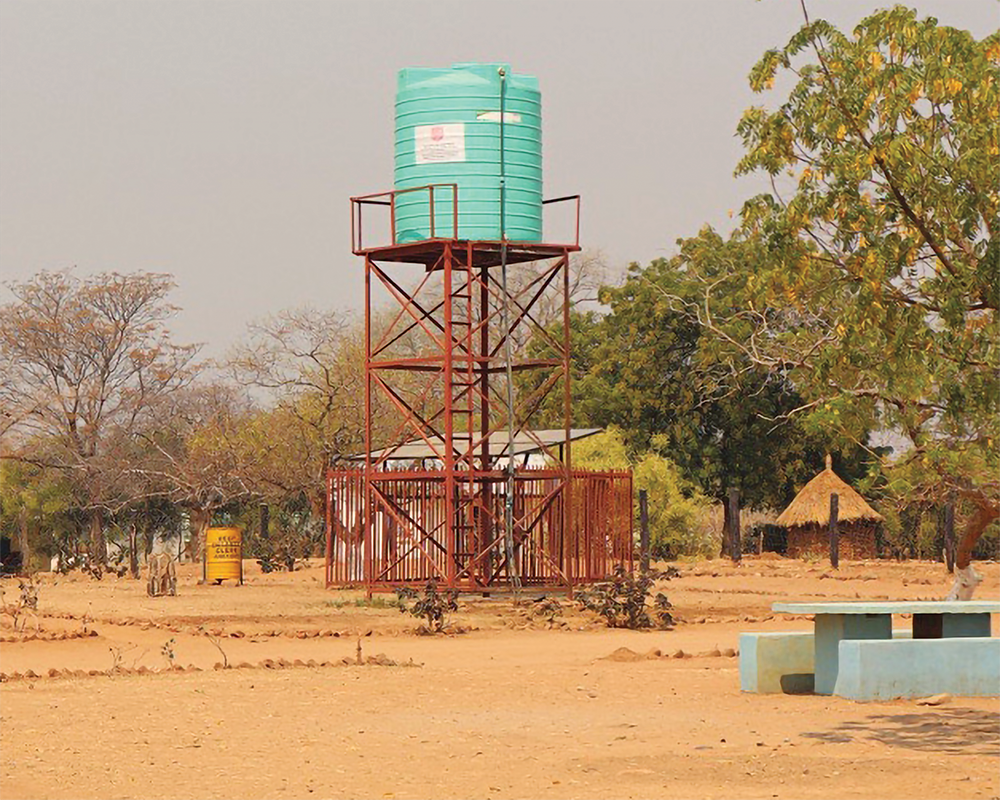Cholera Outbreak in Zimbabwe and Zambia
“The Salvation Army is keen to address this outbreak of cholera on various levels."
Following a cholera outbreak in January, one of the worst outbreaks of cholera in Eastern and Southern Africa for many years, affecting 13 countries within the region, The Salvation Army responded to the situation in Zimbabwe and Zambia.
According to UNICEF, “as of 15 January 2024, more than 200,000 cases, including over 3,000 deaths, have been reported.” In Zimbabwe, the cholera outbreak started in 2023. The report from UNICEF states that “more than 20,000 cases have been reported across all 10 provinces, with more than 400 suspected and confirmed deaths.” WHO Zimbabwe reports that “in the week ending 14 January 2024, a total of 1,875 new suspected cholera cases were reported from nine provinces. This shows a 27.3% increase from 1,473 cases reported in the previous week.”
Neighboring Zambia is also experiencing a worrying increase in cholera diagnoses. Over 14,900 cases have been recorded in the country along with 560 deaths at the time of writing, putting almost 20 million people at risk. IFRC writes: “31% of the cases are in children under five years old.”
Cholera is an acute diarrheal disease that can kill within hours if left untreated. It mostly affects people who have inadequate access to safe water and basic sanitation. Whilst many of those infected have either no or mild symptoms, others need to be treated with oral rehydration solution or intravenous fluids and antibiotics.
SALVATION ARMY CHOLERA TREATMENT CENTERS IN ZIMBABWE
The two Salvation Army hospitals in Zimbabwe—Howard Hospital in Mashonaland Central and Tshelanyemba Hospital in Matabeleland South—are setting up cholera treatment centers on The Salvation Army’s compounds, which are separated from normal hospital activities by a fence to prevent the spread of this highly contagious disease. The centers can treat up to 20 cholera patients each at any given time. If treatment is provided quickly after catching the disease, most patients can be discharged from healthcare facilities within three days.
Working in partnership with other key stakeholders (including the medical officer of health as well as village health workers, other NGOs and the Zimbabwe Red Cross) to provide support to people affected, and to prevent and control the spread of cholera, is a key principle for The Salvation Army. Major Joseph Chiutsi, the Assistant Community Development Services Secretary, said, “The Salvation Army intervention has come at the right time as the cholera has started to spread in schools now. This [project] will go a long way as the crisis continues.”
HYGIENE SUPPLIES IN ZAMBIA
In Zambia, The Salvation Army is also responding to the situation and currently planning a program which will include the provision of soap, chlorine and other supplies to at-risk communities in combination with hygiene promotion and health-awareness measures. They are intending to provide 575 at-risk households with essential hygiene, cleaning and water disinfection items, and to set up 10 communal handwashing facilities in four communities and cholera centers, targeting a total of 3,450 people. These measures go hand in hand with mass sensitization activities on the prevention and control of cholera and good hygiene practices. The Salvation Army in Zambia is also planning to provide essential health and cholera treatment items to clinics and cholera centers in the affected communities.
Captain Heidie Bradbury, the International Health Coordinator, said, “The Salvation Army is keen to address this outbreak of cholera on various levels. In addition to equipping our hospitals with the means to provide treatment to cholera patients without putting other patients at risk, we are also looking at the causes of this outbreak.”
Joanne Beale, the IHQ WASH expert, added, “The Salvation Army has existing water and sanitation (WASH) programs in both Zambia and Zimbabwe. An outbreak like this highlights the need for us to continue to work with communities to improve access to safe water and to further our work on hygiene promotion in order to prevent further cases of this preventable disease. This may include promotion of habits such as handwashing with soap, household treatment of water and the safe collection, transportation and storage of drinking water.”
Report by National Communication and Development Department







